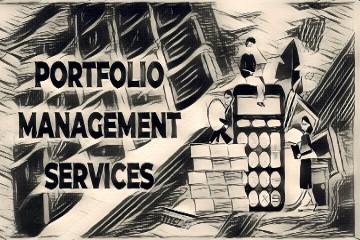Lesson 30: Portfolio Management Services (PMS)
As the Indian economy continues to grow, more individuals are exploring diverse avenues to multiply their wealth. One such avenue gaining prominence is Portfolio Management Services (PMS). This lesson will talk about what it entails, its pros and cons, when it's suitable, and alternative investment options.
Understanding Portfolio Management Services (PMS):
Portfolio Management Services, commonly known as PMS, is a customized investment service provided by financial institutions to cater to the unique financial goals and risk appetites of high-net-worth individuals (HNIs). In simpler terms, PMS involves the professional management of an individual's investment portfolio, where experienced fund managers make strategic decisions to optimize returns.
Key Components of PMS:
--- Customization: PMS offers a high degree of customization, tailoring investment strategies to meet individual financial objectives. Whether the goal is wealth creation, capital preservation, or income generation, PMS allows investors to align their portfolios accordingly.
--- Professional Fund Management: A team of seasoned fund managers oversees the day-to-day management of the portfolio. Their expertise and market insights play a crucial role in making informed investment decisions, ensuring that the portfolio aligns with the client's financial goals.
--- Diversification: PMS emphasizes diversification, spreading investments across various asset classes like equities, debt, and alternative investments. This diversification strategy aims to minimize risk and maximize returns.
--- Transparency: Investors receive regular reports detailing their portfolio's performance. This transparency allows clients to stay informed about the status of their investments, helping build trust in the PMS provider.
Pros and Cons of Portfolio Management Services:
Pros:
--- Professional Expertise: PMS offers access to seasoned fund managers with a deep understanding of financial markets. This expertise can potentially result in superior returns.
--- Tailored Solutions: Individualized investment strategies cater to the unique needs and risk tolerance of each investor, ensuring a personalized approach.
--- Diversification: PMS portfolios are diversified across multiple asset classes, reducing the impact of market volatility on the overall investment.
--- Transparency: Regular updates and reports provide investors with a clear view of their portfolio's performance, fostering trust and transparency.
Cons:
--- High Entry Barrier: PMS typically requires a substantial minimum investment, making it less accessible for retail investors.
--- Fees and Charges: PMS providers charge fees for their services, including management fees and performance-based charges. These costs can impact overall returns.
--- Market Risk: While diversification minimizes risk, PMS investments are still subject to market fluctuations. A downturn in the market can affect the overall portfolio value.
--- Lack of Control: Investors delegate decision-making authority to fund managers, which means they have limited control over individual investment choices.
When to Opt for PMS:
Choosing PMS is a decision that depends on individual financial goals, risk tolerance, and investment preferences. Here are scenarios when considering PMS might be suitable:
--- High Net Worth Individuals: PMS is designed for high-net-worth individuals with a substantial portfolio, usually starting in the range of ₹25 lakhs and above.
--- Seeking Professional Management: Investors who prefer professional management and lack the time or expertise to manage their portfolios actively may find PMS beneficial.
--- Customized Solutions: Those looking for a tailored investment strategy aligned with their specific financial goals and risk appetite may opt for PMS.
--- Long-Term Investors: PMS is suitable for investors with a long-term horizon who can withstand short-term market fluctuations.
Alternatives to PMS:
While PMS offers a personalized approach to wealth management, several alternatives cater to investors with varying risk appetites and investment preferences:
--- Mutual Funds: Mutual funds provide a diversified investment option managed by professional fund managers. They are suitable for investors with varying risk profiles.
--- Exchange-Traded Funds (ETFs): ETFs combine the features of stocks and mutual funds, offering diversification and liquidity. They are cost-effective and suitable for passive investors.
--- Direct Equity Investment: Investors seeking more control over their stock portfolios may choose to invest directly in equities. This option requires active management and research.
--- Real Estate Investment: Real estate investments, such as REITs (Real Estate Investment Trusts) and physical properties, offer diversification outside traditional financial markets.
Portfolio Management Services (PMS) represents an advanced and customized approach to wealth management, tailored for high-net-worth individuals. While it comes with its set of advantages and disadvantages, the decision to opt for PMS should align with individual financial goals, risk tolerance, and preferences.
For Indian investors, exploring PMS as part of their investment strategy requires careful consideration of entry barriers, fees, and the need for professional management. Additionally, alternatives like mutual funds, ETFs, direct equity, and real estate offer diverse options for investors at different stages of their financial journey.
Ultimately, the key lies in making informed decisions that align with one's financial objectives, ensuring a well-rounded and sustainable approach to wealth creation.

@ayuecosystem #kids #youngadults #FinancialLiteracy #WealthManagement #Investing #PortfolioManagement #PMS #FinancialPlanning #HighNetWorth #InvestmentStrategies #Diversification #FinancialGoals #MutualFunds #ETFs #DirectEquity #RealEstateInvestment #IndianInvestors #ProsAndCons #AlternativeInvestments #FinancialLiteracy #MarketInsights #RiskManagement #CustomizedInvesting #TransparentInvesting #LongTermInvesting #ProfessionalManagement #MarketRisk #FinancialDecisions #WealthCreation #AssetAllocation #IndianEconomy #MoneyManagement #PersonalFinance